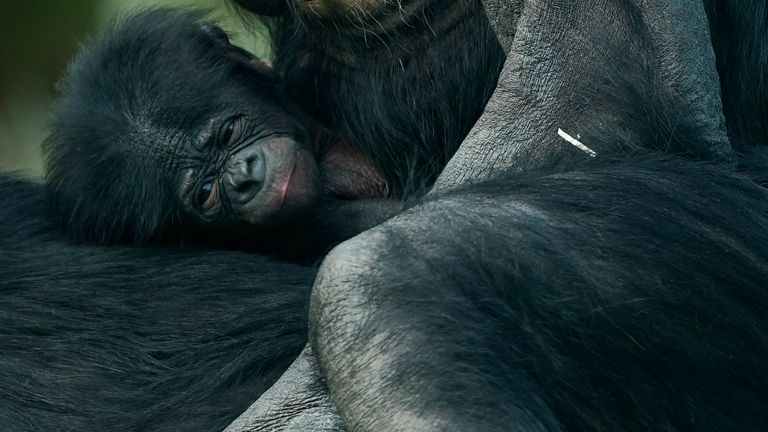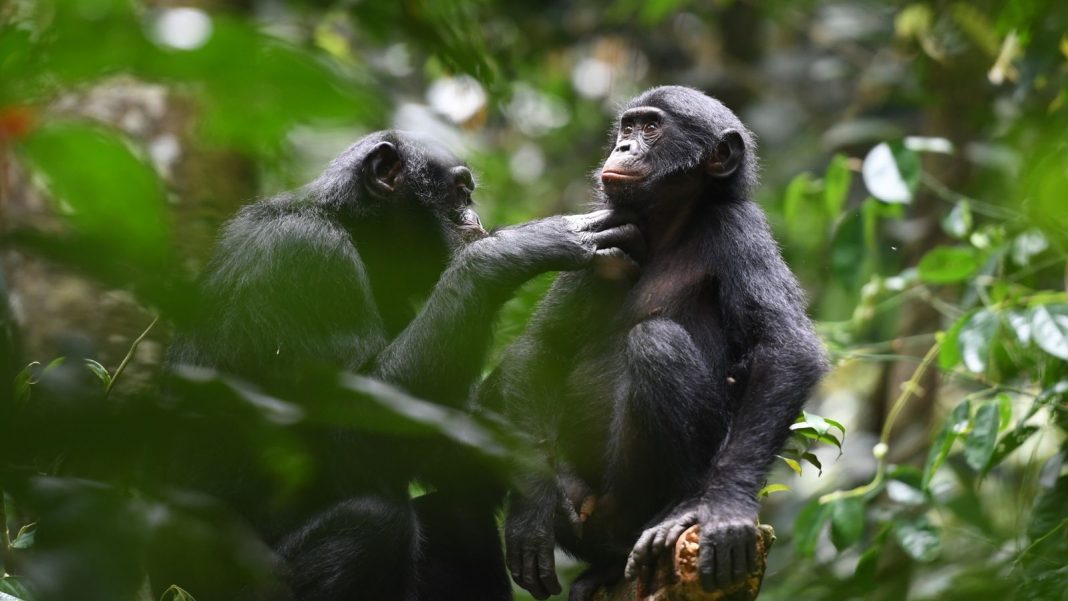New research could shed light on how complex behaviours like cooperation and conflict evolved in humans.
It had been thought only humans were capable of forming strategic alliances with those outside their social groups – but scientists have discovered similar behaviour in bonobos.
The endangered ape species has “remarkable levels of tolerance between members of different groups” and can be seen travelling, feeding and resting together.
These primates select a few individuals with which to form strong bonds and share food and other resources – much like humans.
“They preferentially interact with specific members of other groups who are more likely to return the favour, resulting in strong ties between pro-social individuals,” said Martin Surbeck, a professor at Harvard University’s department of human evolutionary biology and senior author on the study.
Research on primate behaviour has largely focused on chimpanzees, another close relative of humans, because they are easier to study than bonobos – which live in remote parts of the Democratic Republic of Congo.
But chimpanzees are more aggressive, and relationships between different groups are often hostile and can result in lethal aggression.
As a result, previous models of human evolution have often assumed that group hostility and violence are innate to human nature.
Bonobos, on the other hand, are less aggressive.
Prof Surbeck said: “Bonobos show us that the ability to maintain peaceful between-group relationships, while extending acts of pro-sociality and co-operation to out-group members, is not uniquely human.”

Scientists worked with the local Mongandu population in Kokolopori, a community of villages in Djolu territory of the Tshuapa province, to set up the Kokolopori Bonobo Reserve for the study.
Over two years, they observed two small groups of bonobos – 31 adults in total – that spent about 20% of their time together.
From analysing 95 encounters in total, the researchers found individuals from different groups engaged in friendly and co-operative interactions.
Read more science news:
Cambridge Dictionary reveals word of the year
AI ‘poses growing threat to next general election’
Bonobos from different groups were observed grooming each other, sharing food and forming coalitions.
While some of the primates had aggressive interactions, the disputes were not lethal.
The researchers, writing in the journal Science, said: “Our findings show that co-operation between unrelated individuals across groups without immediate payoff is not exclusive to humans and suggest that such co-operation can emerge in the absence of social norms or strong cultural dispositions.”







